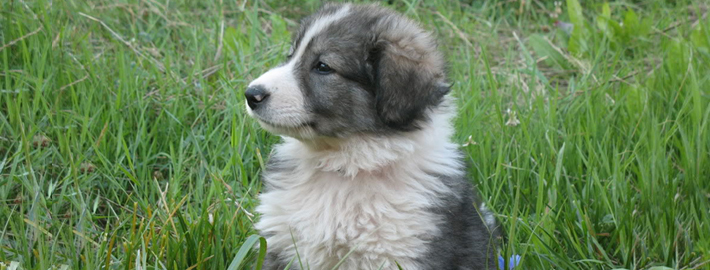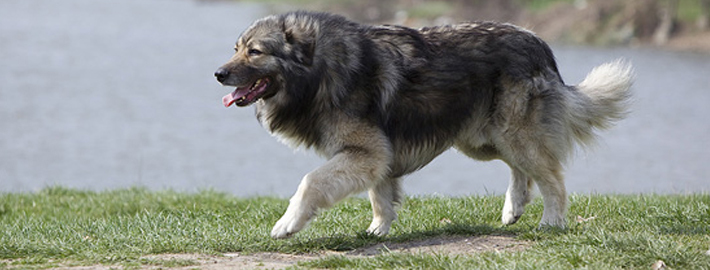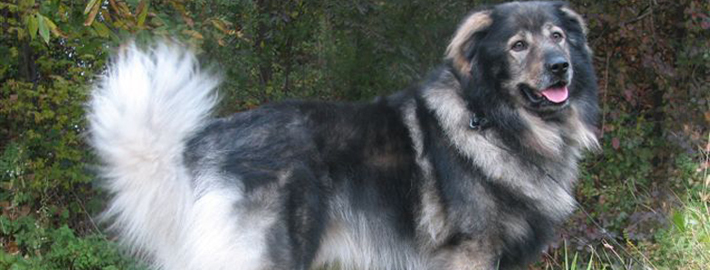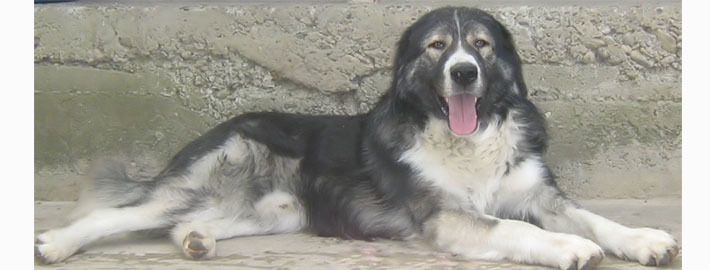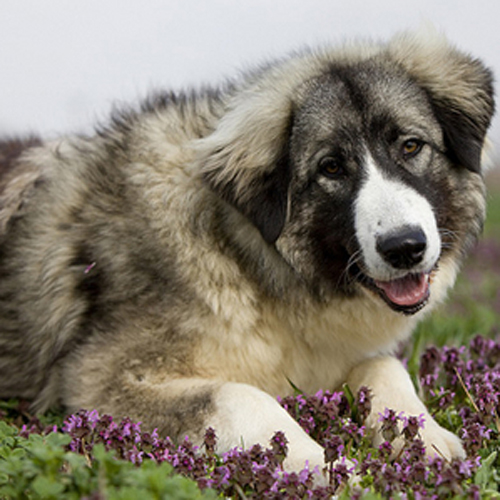What makes the Carpathian Shepherd Unique?
The Carpathian Shepherd Dog has been bred as both a livestock guardian and a family companion and has temperament traits common to both groups of dogs. The Carpathian Shepherd Dog is a truly treasured by its fanciers, who are usually very passionate about the breed. This breed is known to form incredibly close attachments to its family. This breed is famous for its devotion and loyalty, and one of these dogs would follow its master anywhere without question.
Breed Groups
Page Contents
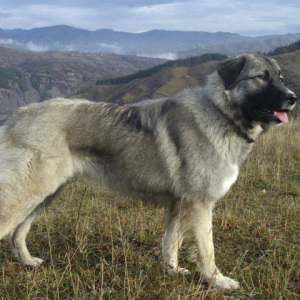
SnapShot
Is the Carpathian Shepherd Right For You?
In 5 Words
- Devoted
- Well-mannered
- Courageous
- Calm
- Leader
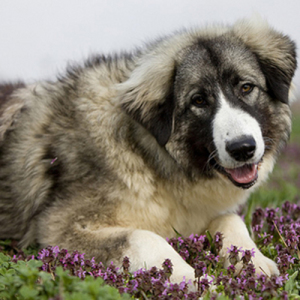
Characteristics
Learn About the Carpathian Shepherd
Description
The Romanian Carpathian Shepherd dog is a large-sized animal with a strong and robust body covered with fur. The head is also big, with strong teeth which produce a fair bite, while the snout is medium sized ending with a big, black nose. The ears, also covered in hair, are medium-sized too and always hanging down on each side or a bit backwards oriented when the dog is paying attention to something. Big waste dog, nimble, never clumsy, vigorous appearance. The body is rectangular, with a broad croup that is slightly inclined. It is vast and high-chested, and has a long and slightly inclined shoulder. The body is massive and sturdy, rectangular, rather long than tall a bit, has strong skeleton and a wide and tall chest. It is not a heavy dog. The head is strong, massive, solid, with a conical, well developed snout, a bit shorter than the skull, which is cambered. It has a moderate stop. The eyes are not too big comparing with head, almond-shaped, oblique, dark. They are not prominent and neither deepened in eyepit. The ears are V-shaped, caught a bit higher than the head’s level, round ended and floppy. The neck is thick and strong.
Short History of the Carpathian Shepherd
The Romanian Carpathian Shepherd Dog has been used for centuries by the Romanian shepherds in the Carpathian Mountains to defend the herds and guard the camps. Selection was based upon performance rather than breed type until the first breed standard was written in 1934.It is believed that they there ancestors can be traced back almost 9000 years. The Carpathian Shepherd Dog (Ciobanesc Românesc Carpatin) originates from the Carpathian Mountains of Romania. For centuries, these dogs have been the hardy companions of Romanian shepherds, and were bred for utility rather than looks. Their main task was to protect the herd from predators and thieves. . They were developed to be formidable guardians of goats and sheep. Today, they are still used to guard flocks, but are also employed as all-purpose farm dogs, home and family guardians, and companions.
Temperament
The Carpathian shepherd dogs are passionately devoted to their work. These dogs are natural guardians, and are therefore courageous. They are unconditionally and instinctively, attached to their master and are calm, stable and dignified. These dogs can, at times, be overly shy or lethargic, and at other times, show aggressive traits. . They possess a strong loyalty to their master and a passionate devotion to their work. They are dignified, mellow, and even-tempered.The Carpathian Shepherd Dog even for his size, is typically affectionate, calm and very loyal. They make great watchdogs and won’t back down if there is perceived danger to self or family.
Caring for Your Carpathian Shepherd
General Health
They are also quite resistant to diseases and have the ability to thrive in different climatic changes. The coat of these dogs is such that they can easily handle different weather conditions. As they are large dogs, owners should be carefully of their dog getting bloat. Bloat is often preventable by feeding several small meals daily instead of one large, and by with holding exercise and water and hour before and after eating.
Grooming & Bathing
Regular brushing helps keep the coat of a Carpathian shepherd dog healthy and removes any dead fur as well. Brushing or combing of the fur several times a week is especially necessary during the spring shedding period. During parts of the year, where there is no shedding, occasional brushing or combing of the fur will suffice.. The weather resistant coat practically cleans itself. Occasional brushing will promote the good condition of the coat. Mud and dirt that clings to the coat would peel off when dried. Dogs should be bathed only when necessary as frequent bathing will remove the weather proofing of the coat. As with any other breeds of dogs, ear cleaning and nail trimming must be included in the grooming routine.
Exercise & Training
This breed needs physical exercise and should be taken for a daily, long walk. In addition, it should have a yard or large space where it can safely run free.

